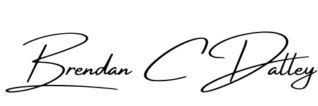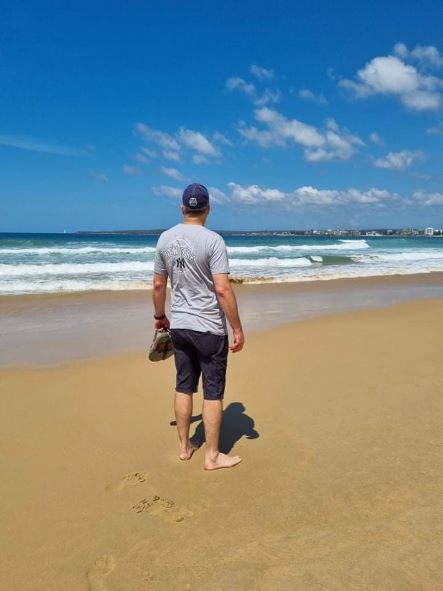Struggling withmental health and depression is tough. Really tough. The first and best step is always to seek out a trusted physician. Assuming that you have already sought this help and guidance, there are other helpful approaches you can embrace. I decided early on in my journey that I would try any therapy that wasn’t illegal, immoral or dangerous to manage my depression. As a result, I had some great successes and a few amusing failures. In the hope that my experience might help someone else, I have reviewed a few key approaches to better mental health here.
A change in diet
If you’ve ever watched any of those healthy eating programs like me, you will have noticed that the advice almost always boils down to eating more green, leafy vegetables and avoiding processed food. Thankfully my diet wasn’t too bad compared to some, but there is strong evidence that suggests that a largely Mediterranean diet can have good effects on your mental health.
The problem for many of us struggling with mental health, is that we can try to fill the emptiness we feel with other commodities. Junk food, alcohol and drugs are all dangerous things to indulge in when you are down. Not only is it important to keep an eye on your diet, it is a simple and proactive step you can take in a better direction.
I am not a Dietician or a health professional in any capacity. This is why I got my Doctor to refer me to a good local Dietician to get the right advice, designed for me. Advice that I could follow without thinking. There was something comforting in knowing that I was doing what I was told and acting according to professional advice. Oh yes, and it’s good for you generally.
Foot reflexology
I’m a fairly ‘down the line’ kind of guy when it comes to my health. My opinions offered here are based purely on how effective the therapies were for me during a crisis. Take foot reflexology for instance. I know very little about the theory behind it, I’m sceptical about pressure points and I’m unclear on what it is claimed to do. That said, there was something quite special about a Masseuse spending half an hour massaging my feet. They take time and care to loosen every joint, sinew and tendon, they moisturise them and they take away a lot of pain.
I was put in a comfortable, reclining armchair, surrounded by calming music, whilst this genius went to work on my feet. In some ways it is quite intimate in a professional manner. After all, even my wife won’t touch my feet. Also, I have arthritis in one big toe, so foot pain is common for me. Foot reflexology, then, is enjoyable enough that apart from helping your feet, you also get a tick for being kind to yourself. An important thing to do when you are down.
Apart from lessening my foot pain, I found that with my eyes shut and being in the moment, that my mental pain was draining away quite significantly too. I found it very emotional. Afterwards, I walked around the shopping mall in what can only be described as a gentle haze. Whatever it was that did it, foot reflexology gets a thumbs up from me. It didn’t cure me in any significant way, but it did chase the wolf from the door and my feet didn’t hurt.
Walking
I find in hindsight that walking has virtually been my way of self medicating during times of sadness. For years, when the ghosts got too loud, I would wander long and far through whatever neighbourhood I found myself in. Sometimes I would listen to music, sometimes I would pray long winded and rambling prayers (whinging before the Lord) and more recently I would walk in silence.
The reason walking seems to be such a great activity for depression, is that there is something inherently mindful about putting one foot in front of the other. Added to this, you can train the senses to keep you solidly in the present moment. There is always something to see, the breeze will caress your skin and the scent of salt in the sea breeze or the freshness of the flowers gives you something to smell. If you focus on your senses, there is little room for catastrophic thinking.
As I walked, I would focus on my steps and my breathing. I could visualise the stress and confusion draining back into the soil and my head would clear. Afterwards, not only did I gain the benefits of the increase in endorphins, I felt better for having done something for myself.
Sometimes it wasn’t easy to leave the house, so I would text a mate and arrange to have coffee afterwards. In this way, knowing I had someone relying on me, forced me out of the house. Walking is a great and incredibly simple approach when you find yourself isolating too much.
Music
Music has the power to calm or enrage you, depending on your circumstances and tastes. Knowing what music affects you positively can be a great way to motivate yourself when things are darkest. It also helps to know what music to avoid.
I developed a number of playlists to listen to when I am struggling. My theory is to start the list with instrumental, meditation tracks, because often they are all I can handle. Slowly but surely I choose songs that are slightly more upbeat and enjoyable. After an hour, I often find my mood has risen with the tone around me so that I am ready to face the world again.
Lists
Saying ‘keep lists’ may seem like the lamest piece of advice anyone could give, but it isn’t. Left to my own devices, I would often stay under a blanket on the lounge when I was down. When my wife would come home, the sight of me with pillows on my head would break her heart. It was clear evidence that I wasn’t coping. With this in mind, she started leaving me with a list of small, achievable tasks to complete each day. It worked.
Knowing that I was fulfilling jobs that my family were relying on me to complete, was enough motivation to get moving. The lists also worked crucially because I trust my wife’s judgement. Gradually the tasks got bigger and involved me leaving the house each day. Sometimes she would say “Why don’t you visit so and so while you are out?” or “Get yourself lunch while you are down there”. In this way, the list we kept left a clear trail back to a useful existence.
In the end…
In the end, the road out of depression is long and filled with potholes. No one thing will heal you. A healthier mental life is the result of a combination of factors, including the ones I have discussed here. The complete picture will be different for each person. As a society, we should share our better approaches to mental health resilience openly and honestly, because you never know who might benefit from them.
Most importantly, the best thing you can do if you find yourself in a deep, dark hole, is to employ a medical professional to guide you. They are essential when it comes to mental health.
Places of help
If your life is at risk, please call 000
- SANE Australia (1800 18 7263)
- Lifeline (Freecall 131314)
- Lifeline – Domestic Violence
- RESPECT – National Sexual Assault, Domestic Family Violence Counselling Service (1800 737 732 24×7)
- Domestic Violence Line (24hrs): 1800 656 463
- MensLine Australia (1300 78 99 78 24×7)
- Black Dog Institute
- Beyond Blue (1300 22 4636)
- Alcoholics Anonymous (Helpline 1300 222 222)
- Suicide Prevention Australia
The importance of friendship » The Good The Bad and The Unrelated


Valuable words to consider. I use lists, walk & listen to music 🙂
Pingback: What does healing look like? » The Good The Bad and The Unrelated
Pingback: Strength through weakness » The Good The Bad and The Unrelated